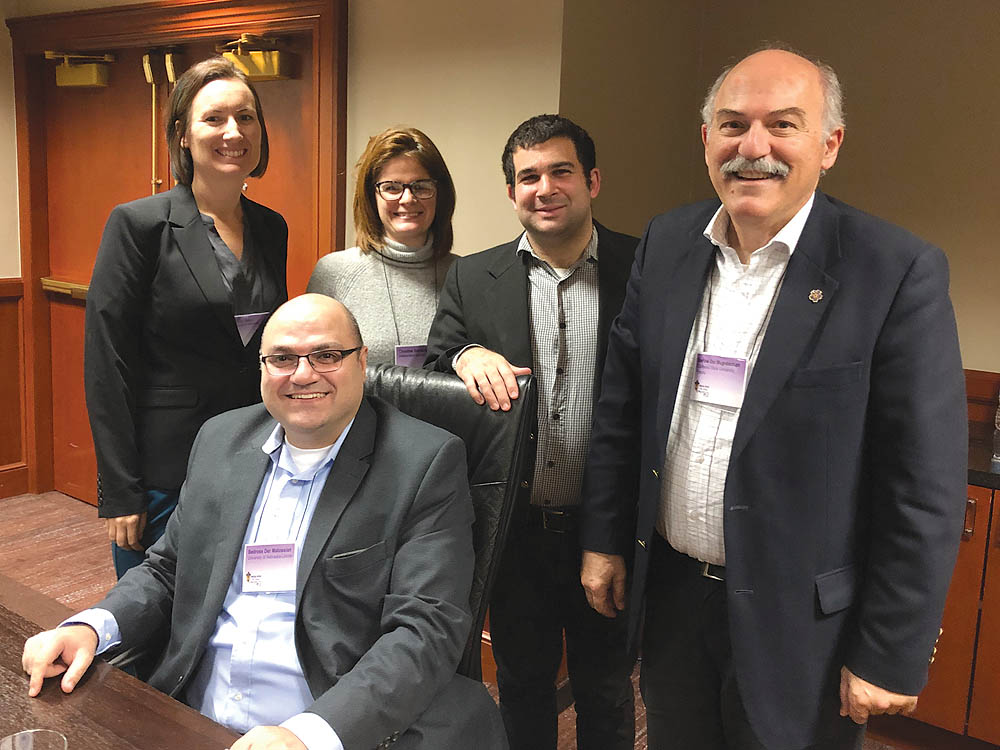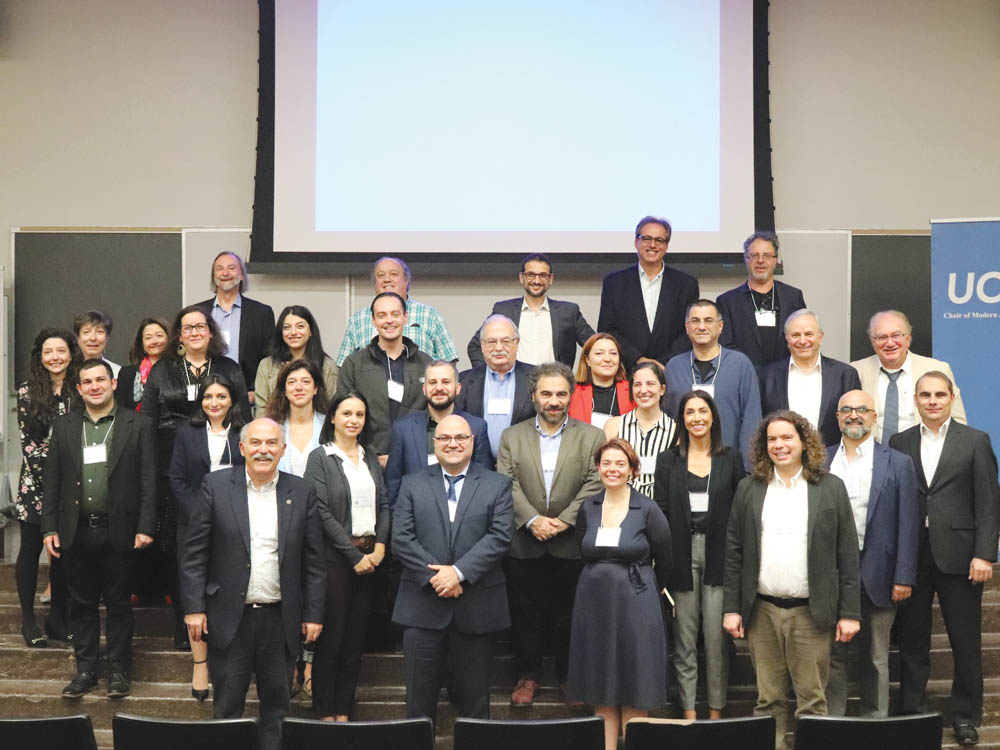
Photo: ASP Archive
Staff Report
The Society for Armenian Studies held its 45th Annual Membership Meeting on Thursday, November 14 at the Sheraton New Orleans Hotel, in New Orleans, Louisiana.
SAS President Bedross Der Matossian opened the meeting and welcomed members. Der Matossian reported on SAS activities for 2019 and also presented plans for the future activities of the Society.
Among the highlights of the past year’s activities was the initiation of the SAS Podcast series, which is comprised of interviews with more than 30 scholars on a variety of topics. The interviews highlight new books and a variety of themes, and were conducted in various languages, such as English, Armenian, and French.
Der Matossian also reported that the SAS has awarded Society for Armenian Studies Research and Travel Grants to 11 students in 2019, each awarded $500 to conduct research and for travel costs to conference. The Grants are awarded semi-annually to the graduate members of SAS and are supported by Armenian Studies Chairs and Directors in addition to the Gulbenkian Foundation, NAASR, and the AGBU Nubarian Library.
Der Matossian announced the election of two new members to the SAS Executive Council: Tamar Boyadjian (Michigan State University) and Christopher Sheklian (Zohrab Information Center, New York), who will serve as advisors on the Executive Council. They join continuing members Bedross Der Matossian, President; Alison Vacca, Vice-President; Dzovinar Derderian, Secretary; Barlow Der Mugrdechian, Treasurer; and Vartan Matiossian, Advisor. Der Matossian thanked outgoing members Anna Aleksanyan and Vahe Sahakyan for their service.
The winners of the SAS “Der Mugrdechian Outstanding Book Award” for 2018-2019 were announced at the Annual Meeting. Houri Berberian’s Roving Revolutionaries: Armenians and the Connected Revolutions in the Russian, Iranian, and Ottoman Worlds (Oakland: UC Press, 2019) and Heghnar Zeitlian Watenpaugh’s The Missing Pages: The Modern Life of a Medieval Manuscript, from Genocide to Justice (Stanford University Press) were chosen as the co-recipients of the Award. An honorable mention was awarded to James Barry’s Armenian Christians in Iran: Ethnicity, Religion, and Identity in the Islamic Republic (Cambridge University Press, 2018).

The SAS also awards an annual “Best Graduate Conference Paper Award” and a biennial “Best Dissertation Award.” In 2019, the “Nina G. Garsoïan Graduate Research Grant for Ancient and Early Mediaeval Armenian History” was established, which will award $500 on an annual basis to a graduate student in the field of Ancient and Medieval Armenian History. The grant is funded by Dr. Levon Avdoyan, who recently retired as the Area Specialist for Armenia and Georgia at the African and Middle Eastern Division of the Library of Congress. Der Matossian expressed the hope to establish more named awards that would cover different categories in the field of Armenian Studies.
A new initiative is the establishment of e-SAS (Entries of the Society for Armenian Studies), edited by Dzovinar Derderian, an online open access, peer-reviewed platform for the publication of short, scholarly pieces pertaining to Armenian Studies.
The Journal of the Society for Armenian Studies has been a valuable publication providing a forum for a variety of topics. President Der Matossian announced that Brill Publishing has agreed to become the publisher of the JSAS, thus elevating the prestige of the Journal. Tamar Boyadjian was named the new editor of JSAS, succeeding Sergio La Porta.
The SAS has also started an SAS Publication Series, in conjunction with the Armenian Series of The Press at California State University, Fresno. The first publication in the Series was Western Armenian in the 21st Century: Challenges and New Approaches. The publication of the second and third volumes in the Series are well underway.
On the occasion of its 45th Anniversary, the SAS is embarking on a major Capital Campaign to increase its current endowment fund, with the goal of reaching $200,000.
Thanks to the efforts of previous Presidents and Exec-utive Councils, the SAS had established an endowment fund that now stands at $48,000, the interest of which is used for SAS special projects.
The SAS Annual Membership meeting was preceded by a meeting by the SAS Executive Council. Next year’s Membership Meeting will be held in October in Washington, D.C., in conjunction with the Middle East Studies Association Annual Conference.
 Hye Sharzhoom Armenian Action
Hye Sharzhoom Armenian Action